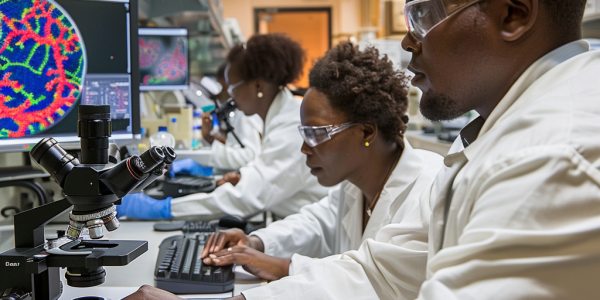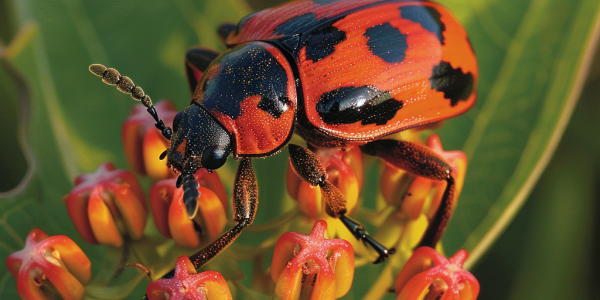Unlocking the Dark Proteome: New Insights into Human Genetics and Disease
Recent genomic research has unveiled the ‘dark proteome,’ revealing thousands of overlooked genes that encode miniproteins, reshaping our understanding of human biology and disease. This groundbreaking analysis highlights the potential for new medical discoveries, particularly in cancer and various health conditions, as scientists explore these unconventional genetic segments.
Breakthrough Study Unlocks Potential to Combat Malaria Drug Resistance
Researchers at UC San Diego have made a breakthrough in malaria treatment by analyzing the genomes of malaria parasites. This study, published in Science, identifies genetic variants linked to drug resistance, paving the way for more effective therapies and improved predictions of treatment outcomes. As malaria remains a critical global health issue, these findings offer hope for controlling and potentially eradicating the disease.
New Discoveries in Coral Microbiomes Highlight Importance of Marine Ecosystems
Recent research has unveiled a novel clade of marine bacteria crucial for the health of deep-sea corals, specifically Callogorgia delta. This groundbreaking study highlights the unique symbiotic relationship between these mollicutes and corals, offering insights into coral resilience amid climate change. Understanding these microbial interactions is essential for marine ecosystem health and biodiversity conservation.
Navigating Privacy Choices and Genome Dynamics: A Dual Perspective
Explore the critical intersection of digital privacy and genome dynamics. Understand your cookie choices to protect personal data while discovering groundbreaking research on gene mobility and chromatin organization. Stay informed on how these insights impact gene regulation and potential medical advancements.
Breakthrough in Gene Editing: Targeted In Vivo Treatments Show Promise for Genetic Disorders
Recent advancements in gene-editing therapies are revolutionizing treatment for genetic disorders. Researchers at UT Southwestern have developed lipid nanoparticles for in vivo gene editing, showing promising results in correcting mutations linked to cystic fibrosis. This innovative approach could lead to one-time treatments that eliminate the need for complex procedures, offering hope for various genetic conditions.
Groundbreaking Research Unveils Secrets of Red Milkweed Beetle’s Toxic Diet Adaptation
Recent research led by Rich Adams reveals groundbreaking insights into the red milkweed beetle, Tetraopes tetrophthalmus, and its unique adaptation to toxic milkweed plants. By sequencing the beetle’s genome, scientists uncover how it thrives on a lethal food source, showcasing the intricate co-evolution between insects and plants. This study enhances our understanding of biodiversity and may impact agriculture and pest management.
Discovery of Thylacine Head Sparks Hope for De-Extinction Efforts
Researchers have discovered a well-preserved thylacine head in a Melbourne museum, igniting hopes for the resurrection of the extinct Tasmanian tiger. This significant find provides crucial genetic material for reconstructing the thylacine genome, spearheaded by Colossal, a biotechnology company dedicated to de-extinction. As scientists navigate the ethical implications of reviving this iconic marsupial, the project highlights the intersection of technology, conservation, and biodiversity.
UTA Advances Genomic Sequencing Technology for Medical and Agricultural Breakthroughs
Researchers at the University of Texas at Arlington have made significant advancements in genomic sequencing technology, enhancing our understanding of genetics with implications for medicine, agriculture, and environmental science. Their innovative approach promises faster, more cost-effective genome sequencing, paving the way for personalized medicine and improved agricultural practices, while also benefiting conservation efforts.
AI and Genetic Engineering: Pioneering the Future of Bespoke Proteins for Environmental Solutions
Recent advancements in artificial intelligence and genetic engineering are revolutionizing biotechnology, enabling the creation of bespoke proteins that could tackle environmental challenges like climate change and plastic waste. With AI’s ability to predict protein structures and gene editing technologies like CRISPR, researchers can design proteins for targeted applications in agriculture and medicine, paving the way for innovative solutions. However, ethical considerations surrounding these technologies remain crucial as we explore their vast potential.
Revolutionary Single-Cell Genomics Enhances Understanding of Human Microbiome
Recent research from Waseda University introduces a groundbreaking single-cell genomic approach to studying the human microbiome, revealing insights into microbial diversity and antibiotic resistance. This innovative method, developed in collaboration with bitBiome, Inc., addresses the limitations of traditional metagenomics, allowing for detailed analysis of individual bacterial genomes. Published in the journal Microbiome, the study highlights the potential of single-cell genomics to enhance our understanding of health and disease, paving the way for improved public health strategies and environmental monitoring.










